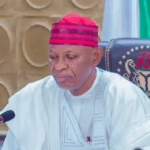Since its inception on May 24, 2024, the Nigerian Education Loan Fund (NELFund) has successfully allocated N99.5 billion to support students and educational institutions within a span of just 16 months.
Data obtained from a Student Loan Disbursement Status Report dated September 24, 2025, reveals that 510,378 students have benefited from this financial aid program.
Of the total funds disbursed, N53.8 billion was directed to institutions to cover tuition fees, while N45.7 billion was provided to students as maintenance allowances.
Currently, 228 tertiary institutions nationwide are participating in the scheme.
The report highlights: “A total of 228 institutions have accessed the fund, with 829,423 applications submitted. To date, 510,378 students have received loans under this program.
“As of September 10, N53,801,717,293.00 has been paid to institutions for tuition, and N45,751,360,000.00 has been disbursed as upkeep allowances, totaling N99,553,077,293.00,” the document states.
Despite the program’s broad reach, challenges remain in ensuring balanced distribution across Nigeria’s six geopolitical zones.
Figures from May 2025 indicate significant disparities between the northern and southern regions.
The North West leads with the highest number of applicants at 157,831, followed by the North East with 127,058, and the South West with 92,850 applicants.
Conversely, the South East and South South recorded only 27,098 and 37,180 applicants respectively, while the North Central had 74,120 applicants.
When approached for comments on these regional imbalances, Mrs. Oseyemi Oluwatuyi, NELFund’s Director of Strategic Communications, declined to provide details, citing the sensitivity of the information.
The uneven participation has sparked varied responses from education experts and regional leaders.
Mr. Isaac Oche, a statistician based in Abuja, suggested that the low engagement from South East students might stem from apprehensions about debt repayment burdens.
“The data indicates that southern students are not fully leveraging this opportunity, despite NELFund’s extensive awareness campaigns in the area. I believe the situation may have improved recently,” he noted.
“Distrust in government initiatives or insufficient grassroots outreach could also be factors. Enhanced sensitization efforts are necessary to dispel doubts and foster confidence,” he added.
Students have praised the initiative as a transformative policy of the current administration but expressed dissatisfaction with the restriction of the monthly upkeep allowance to holiday periods only.
Cletus Tse, a final-year student at Joseph Sarwuan Tarka University in Makurdi, shared how the loan has positively impacted his education.
“Without this financial support, I might have dropped out in my second year. It has allowed me to concentrate on my studies without the constant worry of tuition fees,” he said.
However, Tse raised concerns about delays in the disbursement of upkeep allowances.
“The government should expedite the release of these funds because delays often mean the allowance arrives near the semester’s end, which defeats its purpose,” he explained.
He also emphasized the need for robust job creation policies to ensure graduates can repay their loans.
“While the loan helps us stay in school, repayment will only be feasible if there are employment opportunities waiting for us after graduation. The government must align this initiative with job creation to prevent it from becoming a financial burden,” Tse concluded.
South East Leaders Voice Concern Over Low Student Loan Uptake
Prominent figures from the South East, including leaders of the Igbo socio-cultural group Ohanaeze N’digbo, have raised alarms about the underutilization of the federal government’s student loan program in the region.
Following concerns raised by Nnamdi Azikiwe University (UNIZIK) management in Awka, Anambra State, regarding the low application rates for NELFund, former national vice-president of Ohanaeze Ndigbo, Chief Damian Okeke-Ogene, described the trend as troubling.
He urged students in the region, who have often voiced feelings of marginalization, not to overlook this valuable opportunity.
“NELFUND is a nationwide initiative designed to alleviate financial hardship and facilitate access to university education. If our students fail to apply, they risk missing out significantly,” he warned.
“As integral members of Nigeria, we must seize benefits intended for all. NELFUND is available to students across national universities, so our youths should actively apply,” he added.
Okeke-Ogene called on the National Orientation Agency (NOA) to intensify efforts in raising awareness about the loan scheme, suggesting that low application rates may stem from insufficient information dissemination.
He also encouraged university administrations in the South East to formally report low application figures to Ohanaeze leadership, enabling coordinated strategies to boost student participation.
LEADERSHIP Weekend recalls that UNIZIK recently reported that only about four percent of its over 66,000 students had applied for the loan, despite the university’s efforts to publicize the program on its website.
Ohanaeze Attributes Low Access to Regional Marginalization
Mazi Okwu Nnabuike, national president of the Ohanaeze Youth Council Worldwide, lamented the difficulties South East students face in accessing NELFund, linking it to systemic marginalization.
He observed that the eligibility criteria appear particularly stringent for students in the South East, hindering their ability to benefit from the scheme.
“From what I’ve seen, the loan requirements in the South East are more demanding. While students in other zones receive funds with relative ease, ours face unnecessary obstacles,” he stated.
Barrister China Odu also urged the federal government to overhaul the system to facilitate smoother access for interested students.
“We continue to receive complaints about disbursement delays, which undermine the program’s effectiveness and the nation’s educational progress,” he remarked.
Senior Advocate Mike Ahamba Calls on South East Students to Embrace the Loan
Chief Mike Ahamba, a Senior Advocate of Nigeria from Imo State, expressed surprise at the low application rates among South East students.
He criticized regional leaders for not adequately promoting the loan scheme.
“I was unaware that South East students were not applying. While they may have their reasons, the lack of participation is concerning,” he said.
Ahamba compared the reluctance to apply for the loan to the region’s low enlistment in the military, often attributed to fears of discrimination and deployment to dangerous areas.
“The real issue is that opportunities in Nigeria are often allocated based on quotas rather than merit, unlike countries like the USA where access is location-based. Unfortunately, the quota for South East students remains unclear,” he explained.
He called for an investigation into the reasons behind the low uptake and urged corrective measures to ensure equitable access.
Professor Obiaraeri Links Low Participation to Poor Publicity and Job Scarcity
Former senatorial candidate and law professor, Prof. Nnamdi Obiaraeri, attributed the limited engagement with NELFund to inadequate promotion by educational institutions and the scarcity of employment opportunities post-graduation.
“Many universities have not sufficiently informed their students about the fund and its benefits, which limits awareness and participation,” he said.
He noted that skepticism about the program’s longevity and stringent repayment terms also deter potential applicants.
“Although the board may waive repayments, employed graduates are required to repay their loans, making unemployment the only exemption. This reality discourages students who fear being burdened with debt without job prospects,” Obiaraeri explained.
He emphasized that guaranteeing employment after graduation would significantly increase the program’s appeal.
“The initiative is commendable, but its success hinges on assurances of job availability for beneficiaries,” he concluded.
Professor Eze Attributes Low Enrollment to Historical Exclusion
Professor Fred Eze, a respected Ohanaeze leader in Enugu State, linked the South East’s low participation in NELFund to decades of marginalization.
He explained that the region has become self-reliant, often foregoing government support, which partly explains the limited enrollment.
Abia Parents Unaware of the Loan Scheme
Surprisingly, some community leaders and parents in Abia State remain uninformed about NELFund.
They partly blame the authorities for insufficient public sensitization and suggest that students themselves should be more knowledgeable about the program than their guardians.
Livinus Nzedike, a prominent Igbo socio-cultural figure, suggested that ignorance and lack of trust might contribute to the low response.
“The disparity between the South East and other regions like the North West and South West is concerning and warrants thorough investigation,” he said.
An anonymous permanent secretary and traditional prime minister expressed dissatisfaction with the region’s response, dismissing common explanations and attributing the reluctance to fears about repayment terms.
Nkechi Kanu, an APC women leader, praised President Bola Tinubu for launching the fund and criticized students for not taking advantage of it.
“It’s ironic that a people who have long complained of marginalization would reject such a valuable opportunity,” she remarked.
Kanu called on government officials and community leaders to intensify awareness campaigns throughout the region.
Ohanaeze Youth Leader Highlights Regional Development Priorities
Comrade Igboayaka Igboayaka, president of the Ohanaeze Ndigbo Youth Council, emphasized that the South East’s priorities lie in infrastructural development rather than student loans.
“Ndigbo are not interested in temporary handouts. We need essential infrastructure like seaports and international airports, which are crucial for commerce and industrial growth,” he stated.
“Our people can afford education independently, but lack of such facilities hampers economic progress,” he added.

















